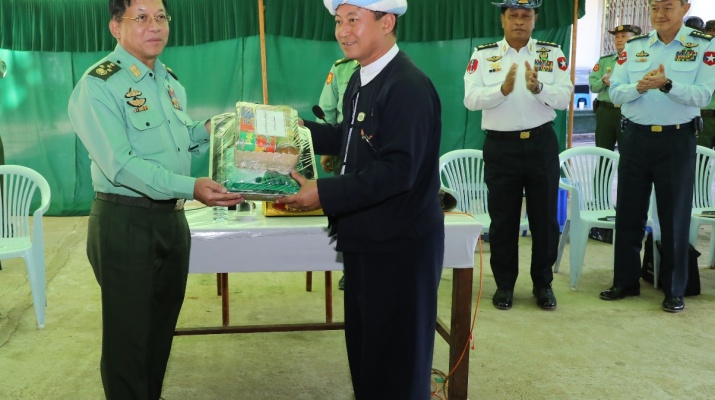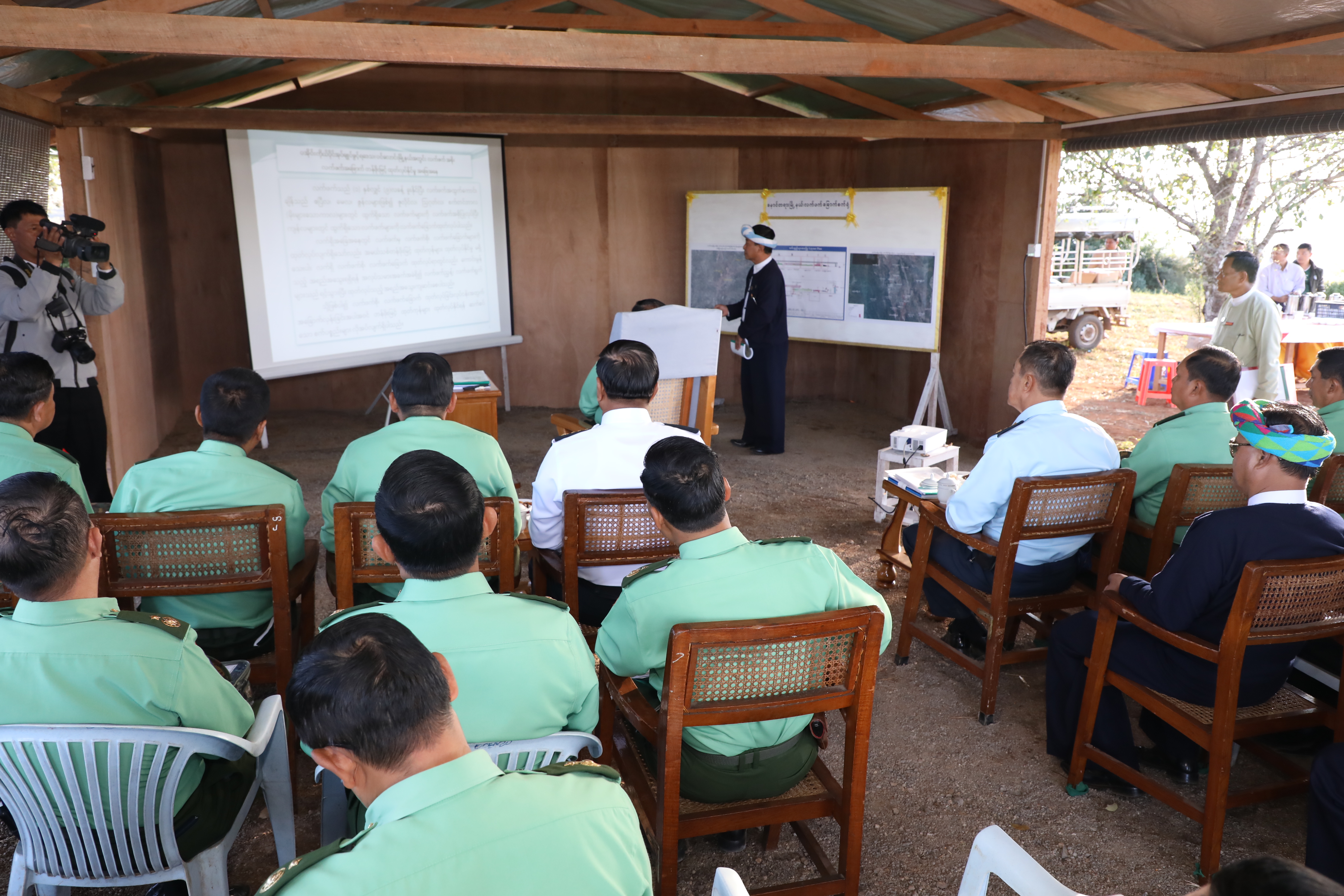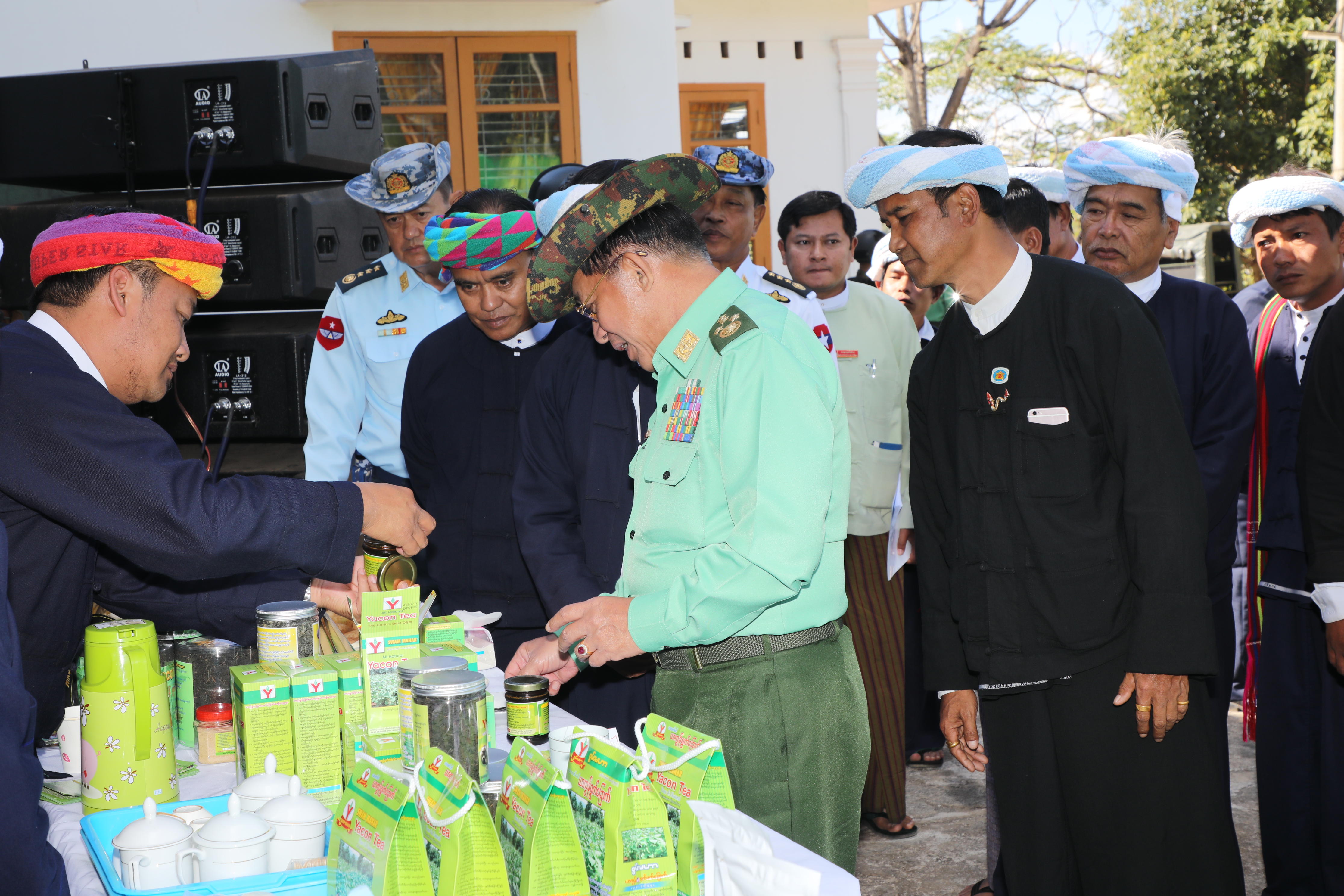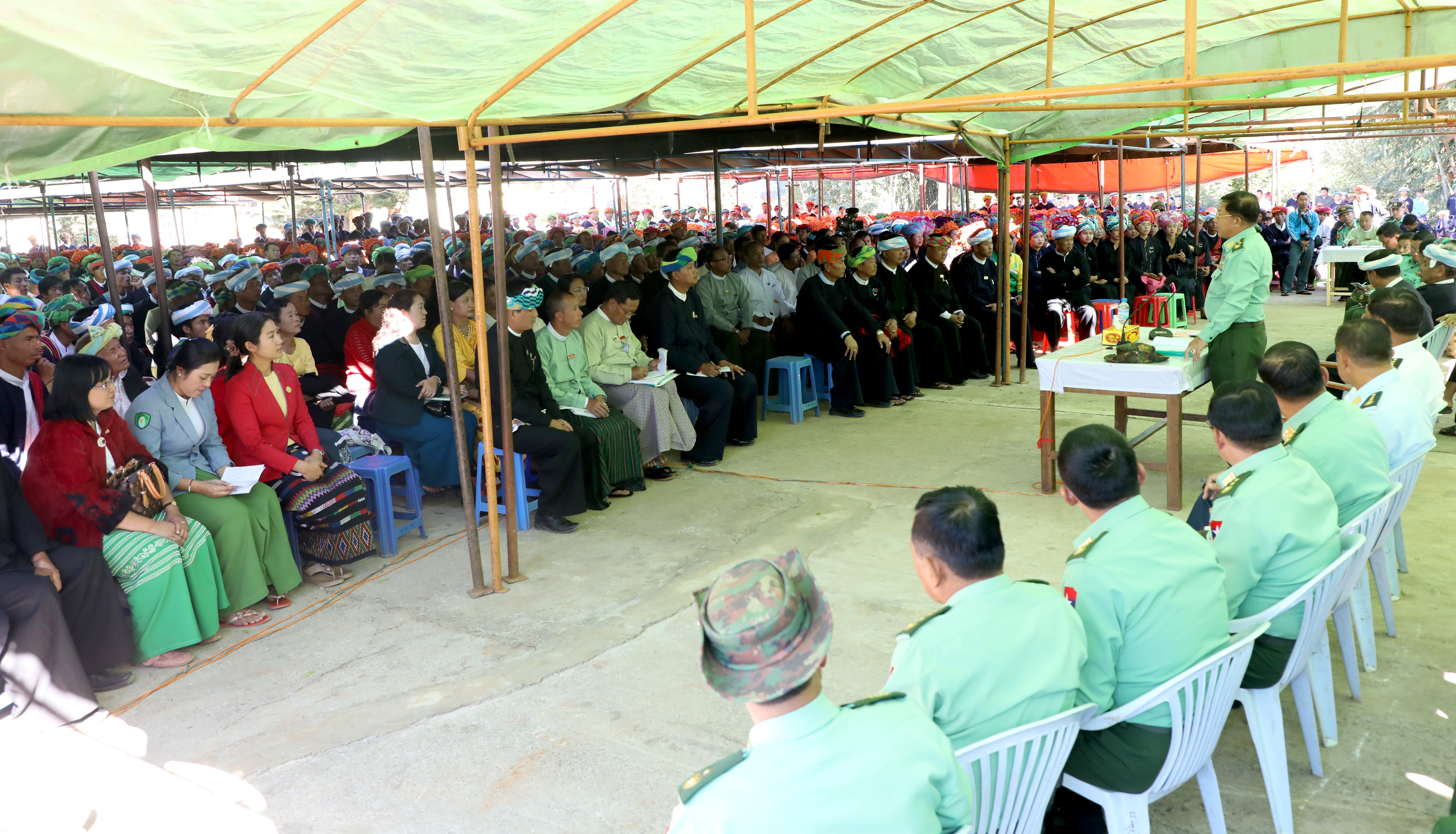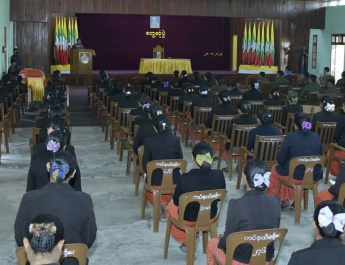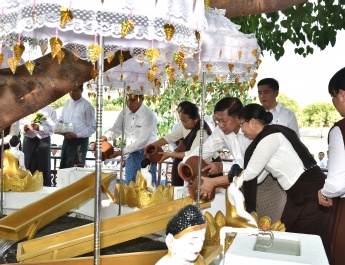NAY PYI TAW December 2
As human resource is of great importance for regional development, it needs to encourage education so as to turn out qualified new generations with skills and knowledge. Emphasis should be placed on carrying out agricultural works combined with livestock breeding tasks on vast land resources in order to develop the whole region, said Commander-in-Chief of Defence Services Senior General Min Aung Hlaing at the meeting with local people in Naungtaya of Pinlaung Township, Shan State (South), this afternoon.
Also present at the meeting together with the Senior General were Commander-in-Chief (Navy) Admiral Tin Aung San, Commander-in-Chief (Air) General Maung Maung Kyaw, senior military officers from the Office of the Commander-in-Chief (Army), the commander of Eastern Com-mand, Leading Body Chairman of Pa-O Self-Administered Zone U Khun San Lwin, Hluttaw representatives from Pa-O Self-Administered Zone, departmental personnel, town elders and local people.
On arrival at Yadana Yannaing Pagoda in Naungtaya where the meeting would be held, the Senior General and party were warmly welcomed by Leading Body Chairman U Khun San Lwin and local people. They viewed round domestic fruits and crops displayed and held bilateral discussions. At the meeting with local people, the administrator of Pinlaung Township reported on data on regional conditions and economic status of the region while local people gave a report on requirements on agricultural and develop-ment affairs.
In his discussions on regional development affairs, the Senior General said that the duty of the Tatmadaw is to defend the State, with responsibilities for serving interest of the people. It has responsibilities for safeguarding life and property of the people. Hence, the Tatmadaw is rendering assistance for interest of the people from Pa-O Self-Administered Zone as much as it can. He expressed his knowledge that being an agro-based region, local people in Pinlaung Township grow potato, tea, paddy, groundnut, pigeon pea, maize, soya bean and Yacon. In so doing, they need to take care of using fertilizers. As chemical fertilizers may cause danger to health of humans, they should systematically use natural fertilizers only. Pinlaung having much land resources can operate not only agriculture but also livestock breeding. Myanmar imports dairy products worth more than US$-100 million on a yearly basis. Hence, breeding of dairy cows and oxen for meat production can reduce import volume of dairy products, and milk and dairy products as well as beef production can help develop the region. Moreover, natural fertilizers obtained from cow dung and humus from earthworm can be utilized in agricultural tasks. He urged local people to strive for exporting quality agricultural and livestock breeding products to foreign countries. He said local people have chance to use Heho Airport for directly exporting products.
The Senior General continued to say that as chemical fertilizers and pesticides may cause cancer, the local people need to reduce use of them as much as they can. If the people use pesticides unavoidably, they need to abide by prescribed directives in a systematic manner. Although everybody desires develop-ment of their region, he urged they should serve interest of the region and themselves through the correct way of livelihoods. Suffi-ciency in electricity, better communication systems, efficient transportation and disciplined human resources are essential for development of a region or a country. Among them, human resources are of utmost importance and it is necessary to bring up scholars who are good at technologies and knowledge. Technologies such as engineering, medical and agricultural science are academic subjects that can be learnt while knowledge is based on experience one has encountered. It is necessary to enroll children starting from their childhood and to maintain higher pass rates. It is necessary for Pinlaung region to bring up intellectuals and to think of ways and means to build agricultural and livestock breeding schools, colleges and universities one after another based on the needs of local residents.
In addition, it is necessary for Pa-O people to try to participate in administrative affairs of their region and to produce foodstuff and consumer goods in their region. As the region possesses the favourable conditions to foodstuff, efforts should be made to increase crop yields. Agriculture, like human beings, needs appropriate amount of water, food and medicines and systematic cultivation can increase crops yield. Local people are required to learn modern methods that will raise quality without clinging to traditional ways. It is necessary to give proper thoughts to generation of electricity, an essential for regional development, and such projects should not be protested if they will not harm the environment seriously. The lack of electricity will hamper economic development, it is necessary to use it beneficially.Although using firewood can lead to abnormal weather conditions, local people still have to rely on the practice. It is necessary to establish manageable level forest and firewood plantation under the arrangement of town elders.
To sum up, it is necessary to carry out tasks for the success of agricultural systems. It is necessary to promote knowledge and tech-nologies and to make efforts to bring up competent scholars of sciences and arts while trying to serve the country. If national cultural characteristics can be preserved, unity and progress can be achieved. Disobedience of discipline and disrespect for the law will lead to drawbacks.
Afterwards, the Senior General presented foods for local residents to Leading Body Chairman U Khun San Lwin and officials, who offered local produces as gifts to the Senior General. Then the Senior General greeted the attendees warmly.
Later, the Senior General and party visited Naungphayar hill in Naungtaya and met with tea farmers from Naungpi, Portin and Loimaw. The Senior General discussed matters related to production and distribution of value-added tea and Yacon crop products, distribution of the products and viability of construction of tea factories for regional development and greeted the local people.


